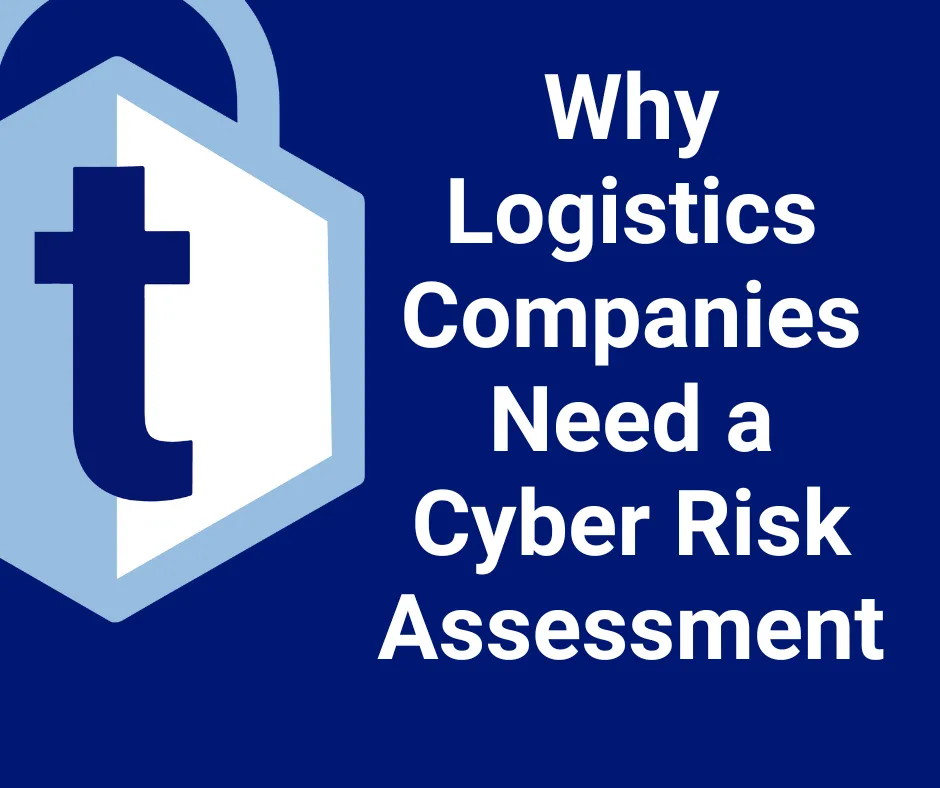
Cyber Risk Assessment for Supply Chain & Logistics Security
Why Logistics Companies Need Cyber Risk Assessments
In the interconnected world of transportation and logistics, your biggest risk may not be on the road but online. Cyberattacks targeting the sector have surged, and even the smallest operational disruption can cascade across your entire distribution network. A comprehensive cyber risk assessment is no longer optional; it is a necessity for any logistics business that depends on real-time systems and continuous uptime.
Transportation & logistics supply chain risk needs your attention, especially as attackers increasingly look for weak links among SMBs.
What Cyber Risk Looks Like in Today’s Supply Chain
The transportation sector has seen a dramatic rise in cyberattacks, highlighting the growing threat landscape. Logistics businesses rely on highly connected systems: routing software, fleet telematics, driver apps, warehouse technology and third-party integrations. When any of these fail, every second counts.
“over the past five years cybersecurity incidents have risen 48 % with transport and logistics among the top three targeted sectors.” Eye Security.
Here is how a single incident can disrupt your entire operation:
Operations Paralyzed
Ransomware can lock dispatching software, GPS systems and warehouse management tools arriving at a stand-still and halting shipments in progress.
Massive Financial Loss
The true cost extends far beyond the ransom. Companies face lost revenue, regulatory penalties, emergency IT recovery efforts and brand damage that can linger for years.
Critical Data Breaches
Logistics firms store customer records, routing details, payment information and fleet data. A breach exposes sensitive info and creates severe legal liability.
Real-World Physical Dangers
In the worst cases, compromised vehicle systems could pose life-threatening risks on highways, shipping routes or delivery sites.
Why It Hits SMBs Hardest
Large transportation brands make headlines but attackers increasingly target SMB logistics companies. Smaller organizations often lack advanced network security, internal IT teams or formal third party risk management (TPRM) processes.
Because SMBs serve as key links in larger distribution networks, attackers view them as stepping stones to bigger targets. Strengthening your cybersecurity posture strengthens your partners’ trust and protects the entire supply chain.
If you support enterprise clients, explore our resources for professionals and managed partners here.
Cyber Insurance: A New Imperative for Logistics Companies
Completing a cyber risk assessment is now essential for qualifying for cyber insurance. Insurers have tightened requirements making proactive security a business necessity.
A strong cybersecurity foundation leads to:
Easier policy approval
Better premiums and cost savings
More comprehensive cyber insurance coverage
Logistics firms that can demonstrate cyber resilience and validated controls consistently achieve better results when seeking coverage.
Explore how tekrisq supports SMBs with insurance-ready cybersecurity here.
Essential Security Practices for Supply Chain Protection
Protecting your transportation or logistics company does not have to be overwhelming. These best practices create a strong foundation for reducing risk:
Employee Training
Your frontline workforce is your first defense. Training helps prevent phishing-based breaches and credential theft.
Authentication
Deploy multi-factor authentication (MFA) across dispatch systems, fleet management tools, email and remote access points.
Fleet Tech Security
Ensure telematics devices, vehicle control systems and IoT sensors are secured and continuously monitored.
Data Backups
Ransomware becomes less devastating when restoration is fast, verified and complete.
Incident Response Plan
Have a documented plan outlining what to do the moment systems go offline. Faster reactions save money.
Vendor Risk & TPRM
Your carriers, 3PL partners, SaaS tools and operational software providers all create risk. Validate them through basic third party risk management practices.
Network Security
DNS filtering, endpoint protection and segmentation reduce the blast radius of a breach.
A Quick Real-World Scenario
Imagine a regional LTL carrier managing 65 trucks and several warehouse hubs. One morning dispatch terminals freeze and GPS pings fail. A ransomware note appears.
The company cannot:
Assign routes
Track shipments
Communicate with drivers
Bill customers
Trucks sit idle, customers panic and partners escalate concerns.
But after performing a cyber risk assessment, the carrier had:
Backup dispatch systems
Validated MFA on all accounts
A documented response plan
Vendor oversight for fleet tech tools
Instead of days of downtime, they recovered in hours and maintained partner confidence.
Secure Your Supply Chain Before Trouble Hits
The transportation and logistics sector is more connected and more vulnerable than ever before. A structured cyber risk assessment helps you uncover hidden weaknesses, harden critical systems and build lasting cyber resilience.
Click here to learn more about tekrisq.
If you’re ready to strengthen your security posture or protect your supply chain relationships - schedule a meeting with us today!
Definitions
Cyber risk assessment: A systematic process of identifying, analyzing and evaluating cybersecurity threats and vulnerabilities to your systems and operations.
Cyber resilience: The ability of an organization to anticipate, adapt to and recover from cyber threats.
Multi-factor authentication (MFA): A security measure requiring two or more verification steps to access systems.
Network security: Measures designed to protect the integrity, confidentiality and availability of networking infrastructure and data.
Third party risk management (TPRM): The process of assessing and mitigating risks posed by vendors, partners and other external organizations.
Cyber insurance: An insurance product designed to cover losses and liability resulting from cyber-events, including data breaches and ransomware.
